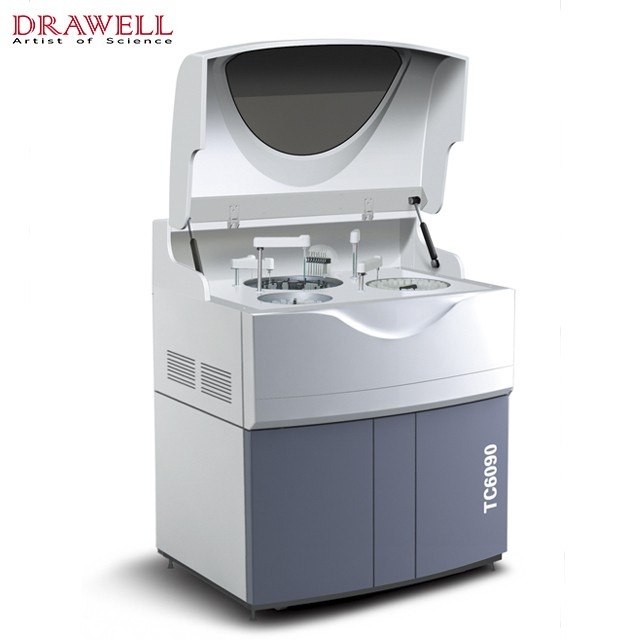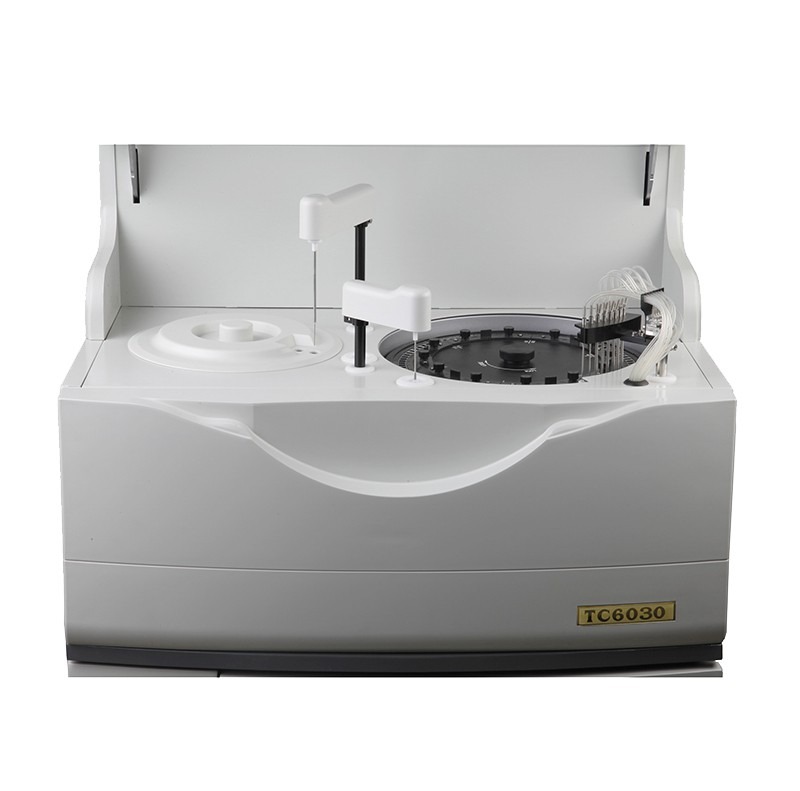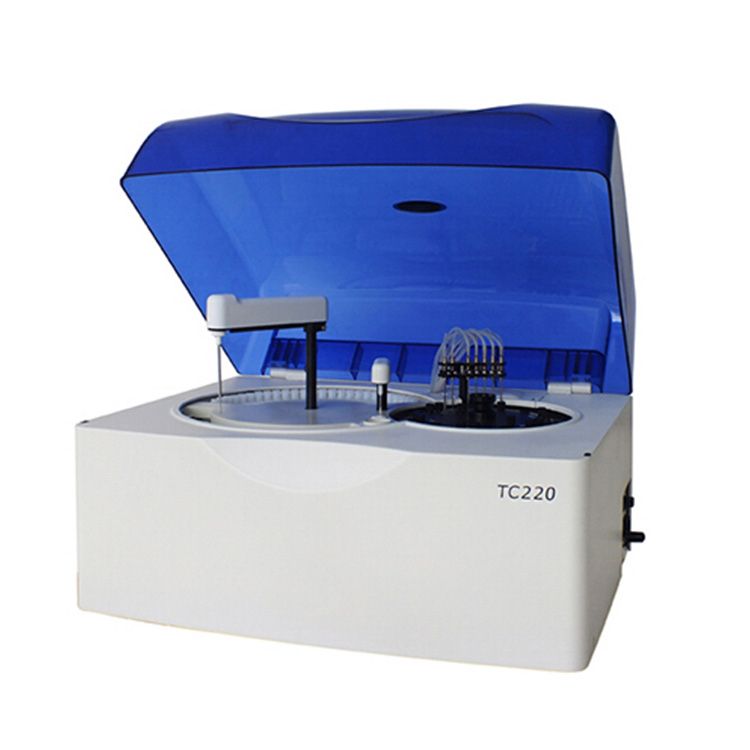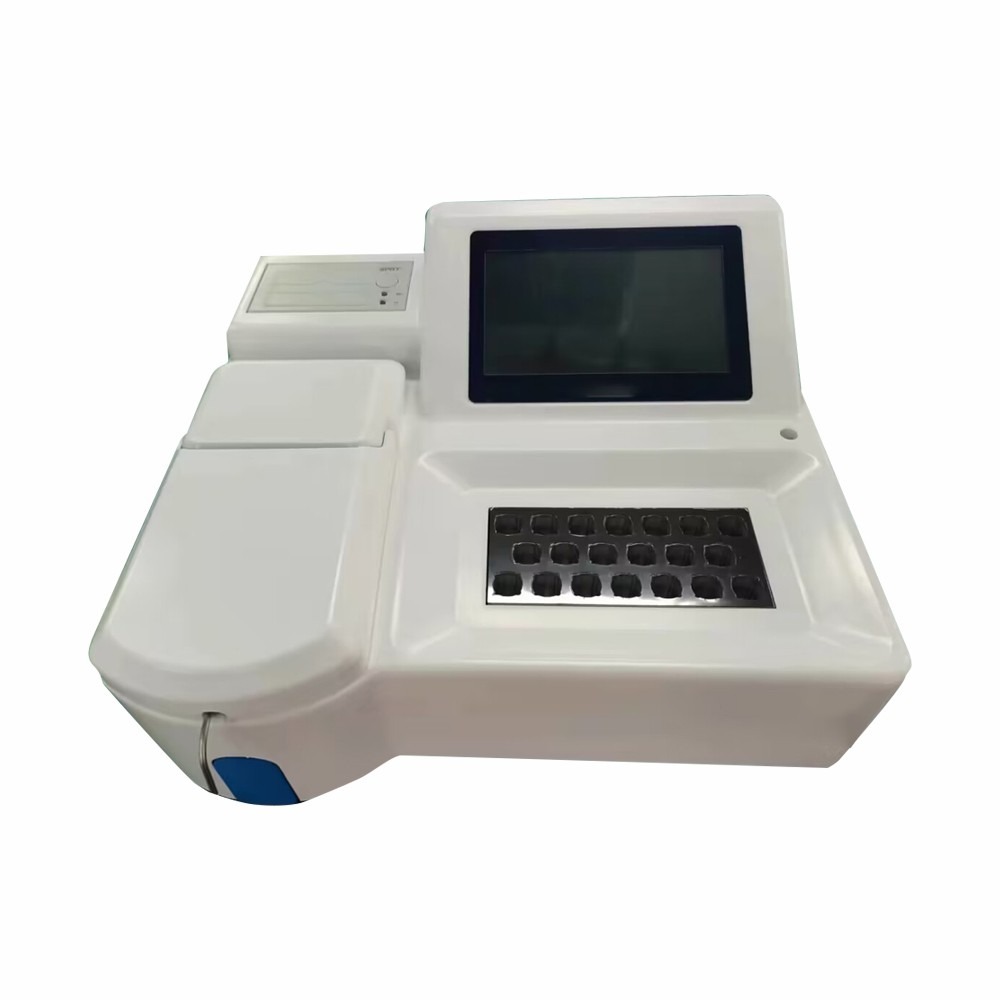Semi-automatic biochemistry analyzers have profoundly altered the clinical diagnostic landscape. This complex instrument combines the accuracy of classic biochemistry analyzers with the portability and ease of use of point-of-care testing, ushering in a new era of medical diagnostics. In this article, we will explore the concept, capabilities, and key applications in clinical practice of the semi-biochemistry analyzer.
Understanding the Semi-Biochemistry Analyzer
The semi-auto biochemistry analyzer is a hybrid medical equipment that analyzes different biochemical parameters in biological material. It sits between standard biochemistry analyzers, which are often found in central laboratories, and point-of-care testing devices, which deliver rapid findings at the patient’s bedside. This hybrid model combines the advantages of both approaches to provide a versatile and effective diagnostic tool.
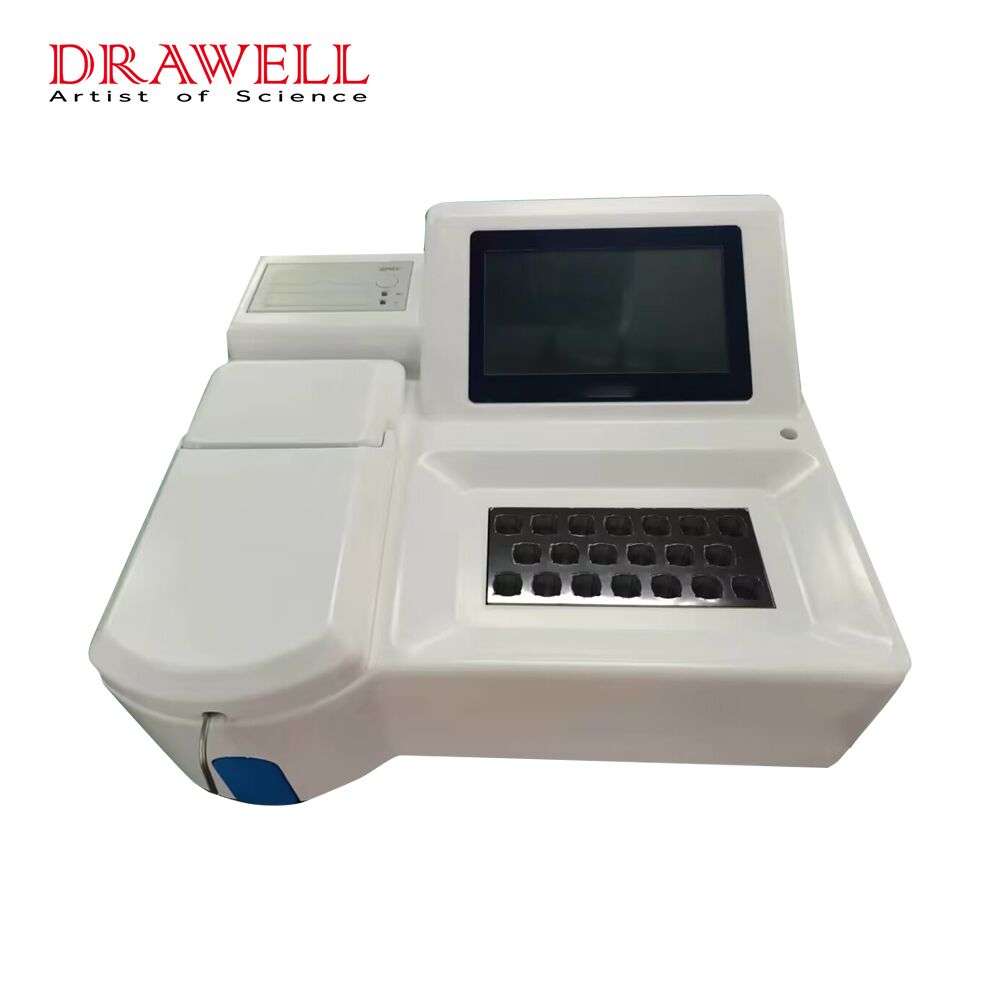
Key Features and Capabilities of Semi Biochemistry Analyzer
Versatility
The semi-biochemistry analyzer may measure a variety of biochemical parameters, such as blood glucose levels, electrolytes, liver function tests, lipid profiles, and more. Because of its adaptability, it is helpful for diagnosing and monitoring a wide range of medical disorders.
Portability
Semi-auto biochemistry analyzers, as opposed to traditional lab-based biochemistry analyzers, are often tiny and portable, allowing them to be used in a variety of healthcare settings, including hospitals, clinics, and even remote places with limited access to full-fledged laboratories.
Speed and Efficiency
These analyzers deliver quick results, which is very useful in emergency situations or when quick decisions are necessary. By speeding treatment regimens, this expedited turnaround time can have a major influence on patient care.
User-Friendly Interface
The semi-biochemistry analyzer often comes with a user-friendly interface, allowing medical professionals with varying levels of expertise to operate the device efficiently. This reduces the reliance on specialized technicians, thus saving time and resources.
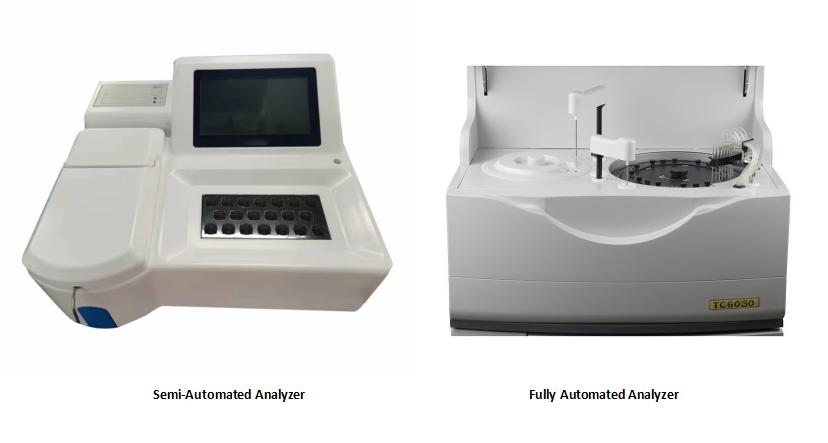
Key Applications of the Semi-Biochemistry Analyzer in Clinical Practice
The semi-biochemistry analyzer has found widespread use in clinical practice, revolutionizing the way healthcare professionals approach patient diagnostics and care.
Emergency Medicine
The emergency department is one of the semi-biochemistry analyzer’s most significant applications. Rapid and correct diagnosis is critical in life-threatening situations. These analyzers can offer critical information, such as blood gas analysis, electrolyte levels, and cardiac biomarkers, allowing physicians to make quick treatment and intervention decisions. This skill has the potential to greatly improve patient outcomes in critical circumstances such as heart attacks, strokes, and severe trauma.
Primary Care and General Medicine
Semi-automatic biochemistry analyzers are frequently used in primary care settings by healthcare providers for routine health checks. By analyzing blood glucose levels, lipid profiles, liver function, and other parameters, these devices enable clinicians to quickly assess their patients’ overall health. This real-time data lets doctors discover health risks early and modify treatment regimens or lifestyle suggestions accordingly.
Chronic Disease Management
Patients with chronic diseases such as diabetes, hypertension, and hyperlipidemia rely on regular biochemical parameter monitoring. Semi-biochemistry analyzers enable both patients and healthcare providers to better manage chronic conditions. Routine tests can be performed at home or in a clinic, decreasing the need for patients to attend a central laboratory on a regular basis. The quick results allow for adjustments to medication dosages, dietary alterations, and lifestyle changes.
Specialized Clinics
Specialized clinics, such as those for kidney disorders, endocrinology, and cardiovascular health, can benefit from semi-biochemistry analyzers by providing focused and rapid diagnostics tailored to their specific patient populations. These devices facilitate comprehensive biochemical testing that is essential for the precise management of patients with complex health conditions.
Maternal and Neonatal Care
Semi auto biochemistry analyzers can aid specialized clinics such as those for kidney problems, endocrinology, and cardiovascular health by offering focused and quick diagnoses customized to their specific patient groups. These devices enable complete biochemical testing, which is required for precise care of patients with complex health issues.

Remote and Underserved Areas
In remote or underserved regions with limited access to fully equipped laboratories, semi-biochemistry analyzers play a crucial role in extending healthcare services. Community health workers, nurses, and midwives can use these portable devices to conduct basic diagnostic tests and screenings, thus improving healthcare access and outcomes for populations in isolated areas.
Clinical Trials and Research
Semi-auto biochemistry analyzers are used by researchers and pharmaceutical businesses to perform clinical trials, collect data, and assess the efficacy of new medications or therapies. These analyzers produce consistent and quick data, making it easier to monitor patients’ health during the trial period.
Challenges and Considerations of the Semi Biochemistry Analyzer
While semi-automatic biochemistry analyzers offer numerous advantages, there are some challenges and considerations to bear in mind
Cost
These analyzers can be relatively expensive, and their consumables (reagents, test strips, etc.) can add to the overall operational costs.
Maintenance
Regular maintenance and calibration are crucial to ensure accurate and reliable results.
Limited Test Menu
Some semi-biochemistry analyzers may have a limited test menu compared to traditional lab-based analyzers.
Training
Proper training is essential to ensure that healthcare professionals can operate the device effectively and interpret the results correctly.
Conclusion
The sem-biochemistry analyzer is a huge step forward in clinical diagnostics, providing healthcare professionals with a versatile, portable, and fast tool for assessing a wide range of biochemical parameters. It has altered the way medical personnel diagnose and monitor health disorders by bridging the gap between central laboratory analyzers and point-of-care devices. Semi-automatic biochemistry analyzers are anticipated to play an even larger role in determining the future of healthcare as technology advances.

